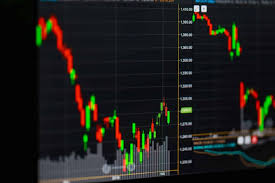
Forex trading hours are critical to understanding the dynamics of the foreign exchange market. As the largest and most liquid financial market in the world, the Forex market operates 24 hours a day, five days a week. In this article, we will explore the significance of trading hours, the market cycle, and how you can optimize your trading strategy by understanding Forex trading hours. For a comprehensive guide on choosing the right brokers for your Forex trading journey, check out forex trading hours Top Forex Brokers.
What Are Forex Trading Hours?
The Forex market is decentralized, which means it does not have a physical location or a centralized exchange. Instead, it consists of a global network of banks, institutions, and individual traders that trade currencies electronically. The Forex market operates around the clock due to different time zones across the globe. It begins on Sunday evening and closes on Friday evening (GMT).
The 24-Hour Forex Trading Cycle
The Forex market is divided into four main trading sessions: Sydney, Tokyo, London, and New York. Each session overlaps with others, creating the potential for increased volatility and trading opportunities. Let’s break down each session:
- Sydney Session: The Forex trading week starts with the Sydney session, which opens at 10 PM GMT on Sunday and closes at 7 AM GMT on Monday. Although trading activity is usually lower in this session, it can set the tone for the week ahead.
- Tokyo Session: Opening at 12 AM GMT and closing at 9 AM GMT, the Tokyo session is significant for trading pairs that involve the Japanese Yen (JPY). This session sees increased volatility as traders react to news from Asia.
- London Session: The London session is known for its liquidity and high trading volume, opening at 8 AM GMT and closing at 5 PM GMT. This session influences the direction of currency pairs and often features overlapping hours with the New York session, creating trading opportunities.
- New York Session: Opening at 1 PM GMT and closing at 10 PM GMT, the New York session is one of the most important trading hours. Often referred to as the “heart” of Forex trading, this session also overlaps with the London session, increasing trading activity.

Overlapping Trading Hours
One of the essential aspects to consider when trading Forex is the overlap between trading sessions. The most active trading periods happen during overlapping hours, where two markets are open simultaneously. The most notable overlap occurs between the London and New York sessions:
- London/New York Overlap (1 PM – 5 PM GMT): During this time, daily trading volume increases significantly, presenting traders with numerous opportunities. Major economic news releases typically coincide with this overlap, leading to greater market movements.
- Tokyo/London Overlap (8 AM – 9 AM GMT): While not as pronounced as the London/New York overlap, this period still offers decent trading opportunities for pairs involving the Yen and European currencies.
Why Trading Hours Matter
Understanding Forex trading hours is crucial for several reasons:
- Volatility: Different sessions have varying levels of market volatility. For instance, the London session is often the most volatile due to high trading volumes, whereas the Sydney session is generally quieter.
- Market News: Key market news is often released during specific trading hours, impacting currency pairs significantly. Being aware of these times helps traders prepare for possible price fluctuations.
- Liquidity: Liquidity varies throughout the day. Higher liquidity typically means tighter spreads and better pricing, making it easier to enter and exit trades.
Best Practices for Trading Forex Hours
To maximize your trading success in Forex, consider these best practices based on trading hours:
- Trade During Peak Hours: Focus your trading efforts during the overlapping sessions, especially the London/New York overlap. This is when you are likely to find the best trading conditions.
- Stay Informed: Keep an eye on economic calendars for news events that might affect your chosen currency pairs. Trading around these times can be rewarding but can also add extra risk.
- Maintain a Trading Routine: Establish a trading routine that aligns with your personal schedule and the market’s rhythm. Consistency is essential in developing a winning Forex strategy.
Final Thoughts
Understanding Forex trading hours is vital for any trader looking to maximize their success in the foreign exchange market. By knowing when different sessions open and close, as well as their volatility levels, traders can create strategies that leverage the dynamic market environment. Remember to always remain informed and adaptable, and don’t hesitate to adjust your trading schedule as necessary. With this knowledge, you are better equipped to navigate the Forex landscape effectively.
